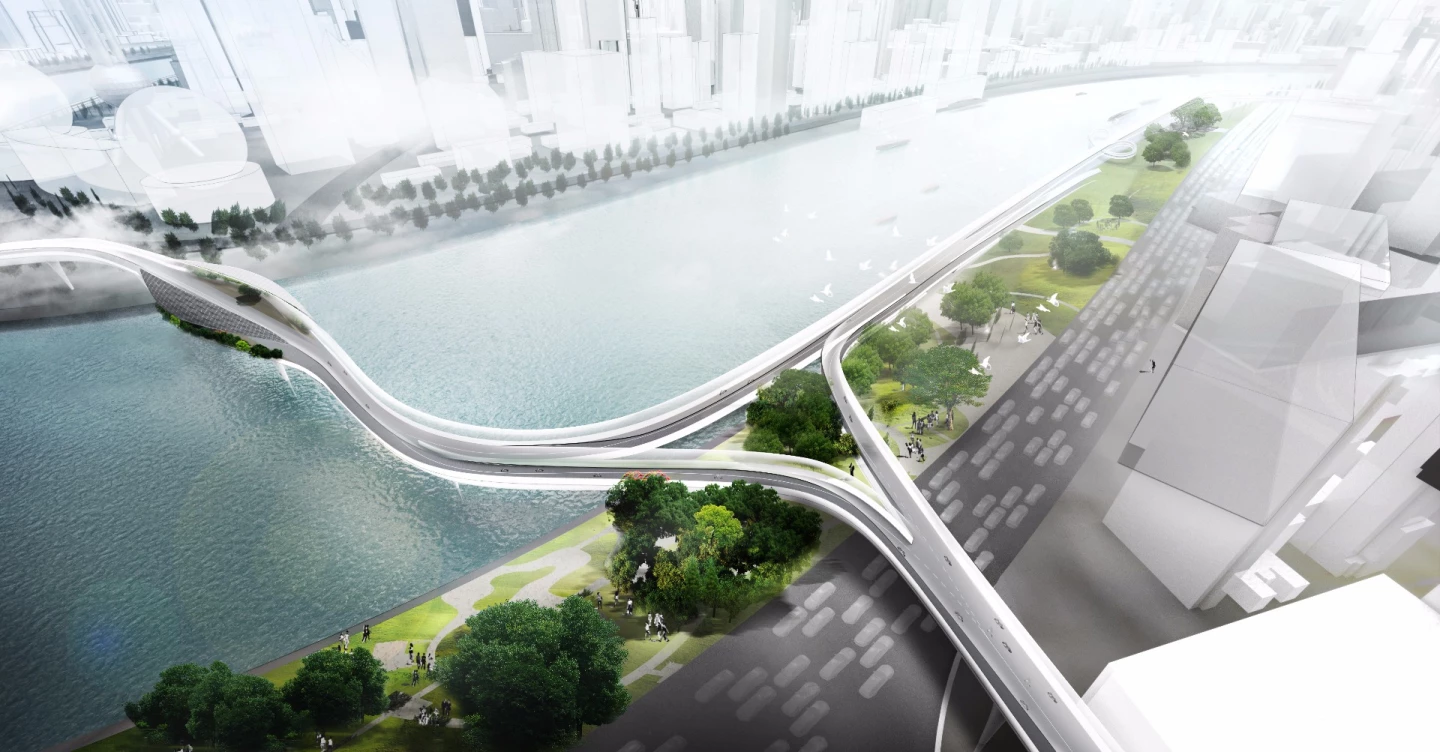BMW's Group Technology Office in Shanghai has put forward a mobility concept for megacities that would raise zero-emission single-track commuters above ground roads and the cars and trucks that travel on them via a giant network of elevated pathways that snake through the city between key transit points.
The idea is that bicycles, as well as a range of other electric mobility devices, including stand-up scooters, e-bikes and small electric motorcycles like the BMW Concept Link we saw earlier this year, would have their own express roads, inaccessible to cars, high above the ground and free from traffic lights.
Dubbed Vision E³ Way, for "elevated, electric and efficient," the plan calls for elevated pathways with domed roofs and cooling ventilation. A speed limit of 25 km/h (15 mph) could be enforced to keep these pathways bicycle-friendly, and the entire thing would represent a significant safety boost for millions of Chinese commuters, as well as a quicker way to get around town without the stop-start nature of road traffic.

To keep things flowing, a lane system prevents traffic from merging until it's had a good chance to get up to speed. Mind you, we've got that system on roads too – the freeway on-ramp – and people don't seem to have worked that one out yet.
Shanghai, with its 25.2 million inhabitants, is the third most highly populated city in the world, and China has shown itself ready to experiment with a range of grand-scale measures to deal with overpopulation, combat pollution and bring forward the age of electric vehicles. Shanghai's main roads already use roped-off areas just for two-wheeled commuting, so perhaps something like Vision E³ Way isn't so far fetched.
As BMW contemplates an autonomous future that may see premium car sales take a dive, initiatives like these show the company is looking beyond the automobile.
Source: BMW










